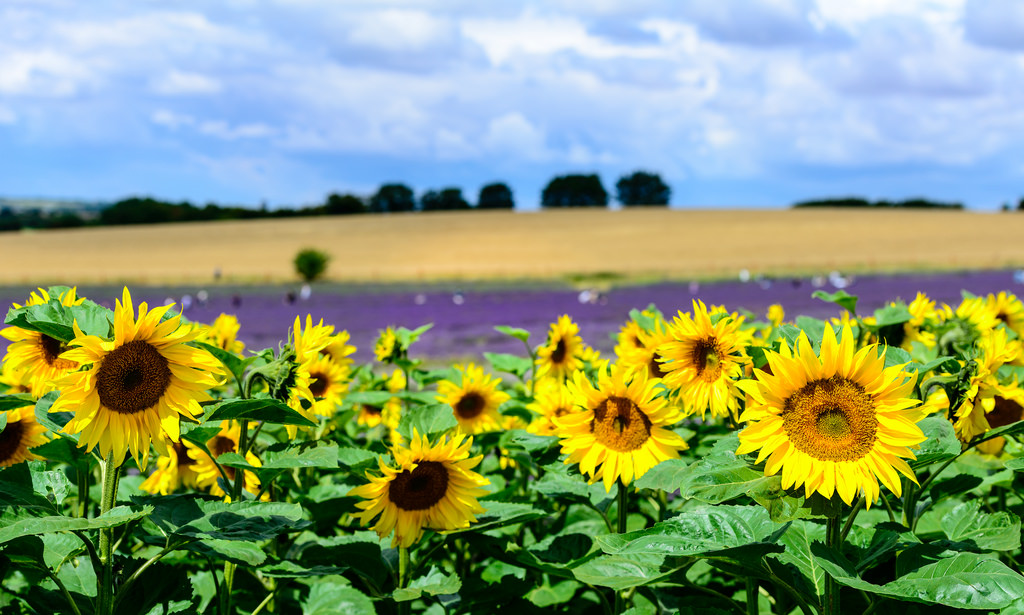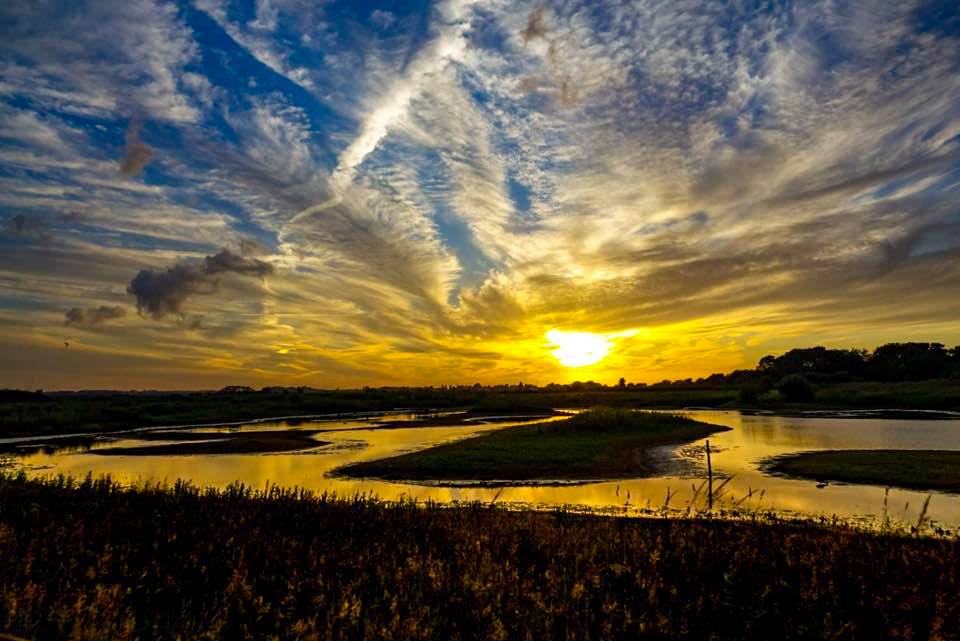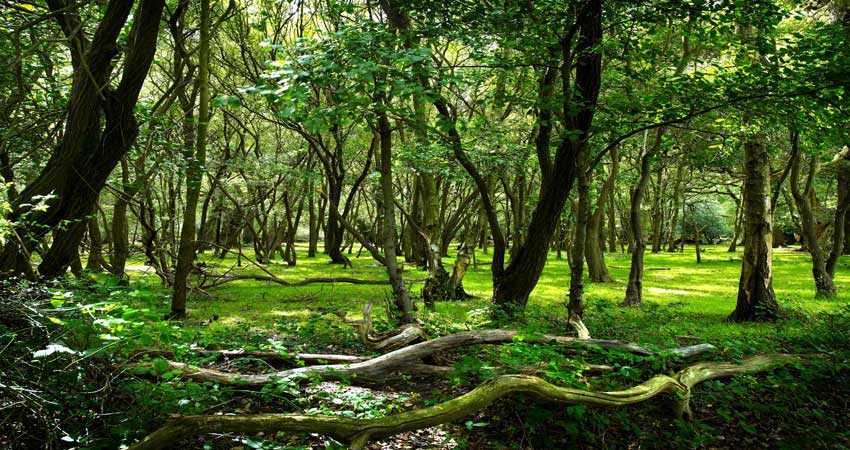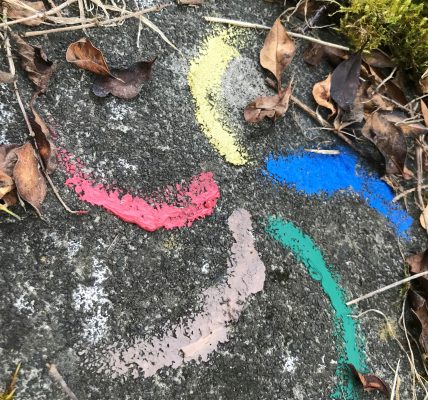Overview
Rolling fields and gentle hills, kind land with good grazing and rich harvests. These are the lands where the Potter and the Farmer hold sway, where the wild past of the Albanni sometimes seems the furthest from now. The Summerlands do not remember the last time they saw great strife or woe, and their people are more ready to embrace civility and peace than their neighbours. Gentle rivers and sunny beaches on the coasts bound the Summerlands to the south and east.
In real-world terms, The Summerlands are Alba’s best lands – encompassing areas equivalent to Essex, Greater London, Kent, Sussex, Surrey, south of the Thames and east of the Isle of Wight. There are also elements of the sacred landscape of Wiltshire around the Avebury complex and Salisbury Plain.
THE LAND
“Blessed are those who dwell forever in summer” is the greeting between neigbours for those who dwell in the good rich land of the Summerlands. The land is kind and not severe; the earth rich and the crops bountiful. Wide, lazy rivers wind slowly to the sea, bringing silt from the uplands to the west; and even in the dark of winter it seems there is a golden glow to the land that marks the benevolence of the Farmer on those who dwell there.
The wiser among the Summerlanders point to the prevalence of the structures of Those Who Came Before; the land is studded with dolmens, straight tracks, circles, barrows, burial mounds and other stranger things; the Great Mound, that rises out of the plains in the midst of a huge network of stone avenues, circles and monoliths the purpose of which is unclear.

The Keepers say that some of the structures and stones are part of the magic of Those Who Came Before and best left as they are; but in some places in the Summerlands, determined Albanni uproot the great stones and move them to free up farmland for cultivation, claiming the Potter’s blessing to do so. Oftentimes such activity will cause a surge in odd phenomena in the area; disappearances, strange sightings and ill fortune often follow, and hunters set out to search for the lost in such circumstances and bring them home, often from much further away than one might expect.
Areas of the Summerlands are wooded, but there is nothing you would call a forest except for a dense area on the southwest coast of the Summerlands marked as ill-omened by those who dwell nearby.
Villages in the Summerlands tend to be larger than elsewhere in Alba; fortifications fewer. In the larger villages stone buildings are not uncommon, and with the settled lifestyle such places bring, crafts such as weaving, masonry, carpentry and even mining flourish.
THE LIFE
Life in the Summerlands revolves around the working of the land – either to grow food or other crops, or to otherwise gain access to the bounty of the earth. This, truly, is the land of Farmer and Potter, a place where things are made and harvested through honest toil and families and communities grow based on the bounty they can gather.
In the Summerlands, the first flickering of a trading culture is beginning, with agreements between some villages that abut one another to meet at standing stones at a solstice to trade goods; such events are rare and often erupt into violence, but of such beginnings is peace made more often. Such things occur only when a Keeper can be found to broker them – meetings without a neutral party usually end in violence, spying, or betrayal.
The downside of the apparent blissful life of the Summerlands is that the influence of The Potter and The Farmer in combination on the Summerlands – and The Potter’s creed of placing you and yours above the greater good. Each village looks to its own riches, and then, seeing the riches of other villages, learns first to covet. And from covetousness comes mistrust, betrayal, and, more often than not, tragedy.
THE HUNT AND THE WAR
The Summerlands needs no external threat to remind it of the hardships of life, for the greatest enemy a Summerlander will ever face is another Summerlander. Contact between villages, with a few exceptions, inevitably turns into hostility, war and strife as trade merely exposes your riches to public view, and your neighbours covet what you have for their own.
The lack of defensibility of Summerlands villages means battles are often ritualised, formalised affairs with village champions agreeing to battle one another at a local site of ritual significance; and while the warriors see to the honour of their villages, other less ethical methods are sometimes used to even the score. Of such things are grudges that last multiple generations made, and thus to neighbours learn to hate one another.
In such an environment, the presence of the Old Ones is seen as almost a nuisance rather than an existential threat. They are vastly fewer in number in the Summerlands than in their other strongholds, and those few that remain focus their efforts on protecting their enclaves in the Deep Forest and in caves in the central plains.
Hunters in the Summerlands focus their time and effort on the capture of wild game, fishing, and falconry; they tend to be more active on the coasts. Hunters are also the ones who, more often than not, find themselves dealing with the side effects of moving the dolmens or uprooting the stones when farmers do not take the risks into account…

Like other areas of Alba, the coasts are regularly threatened by Doggeri, Trollfolk and other threats, but the Summerlanders regard such things as a nuisance which distracts them from their internal feuds, more than a hazard.
VIEWS ON OTHERS
The Summerlanders are curious and inquisitive, and always fascinated by anything new or different; but they can also be acquisitive, quick to anger and proud. They will be welcoming to travellers from afar but suspicious and often hostile to those from nearer; the closer the origin, the more cool the reception.
The Summerlanders see themselves as the most blessed of the Albanni, in the finest lands, with the best lives; they view their northern and western cousins with a mixture of pity and indulgence, and cannot imagine why anyone would willingly live in the Fenlands.





